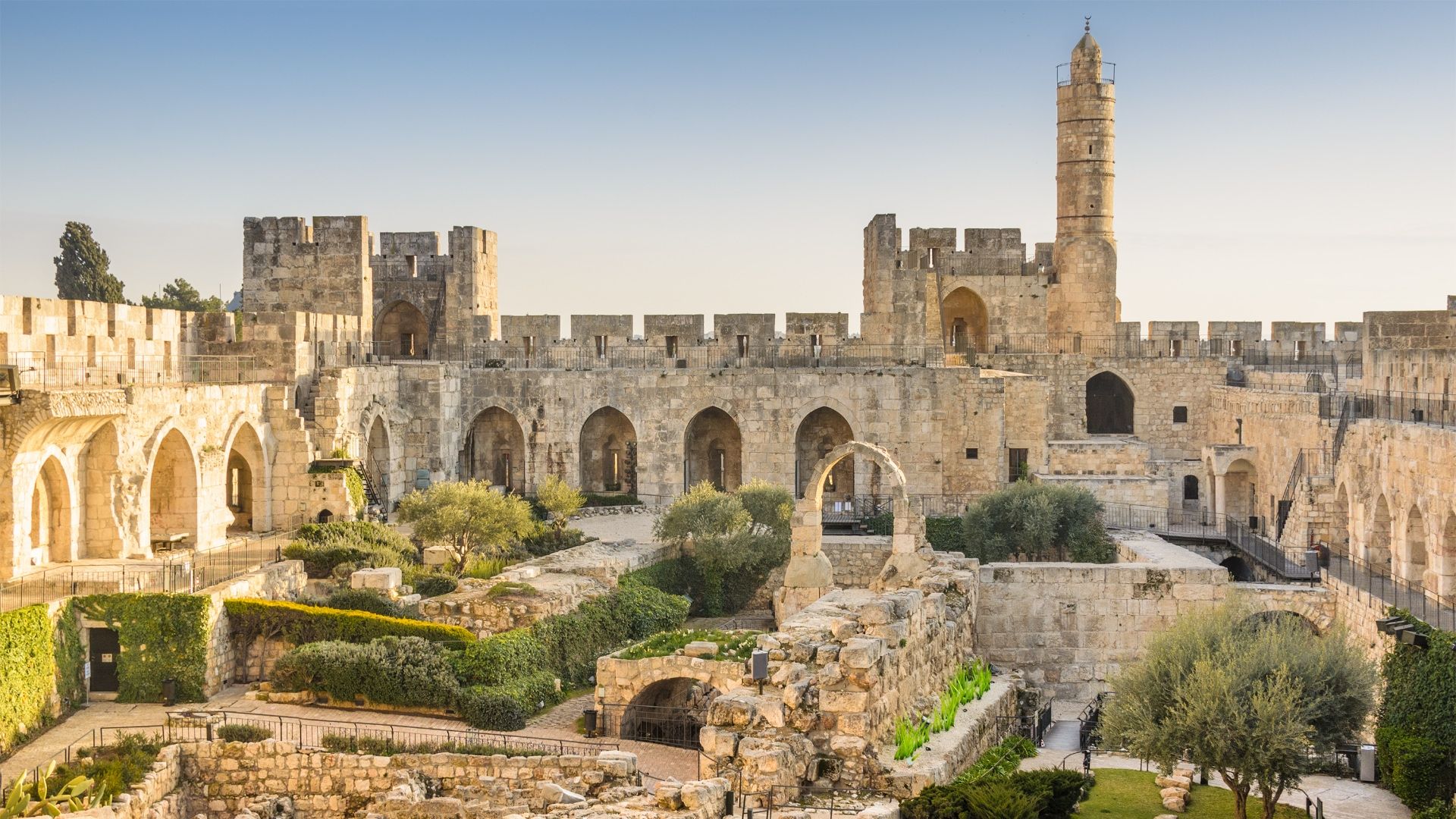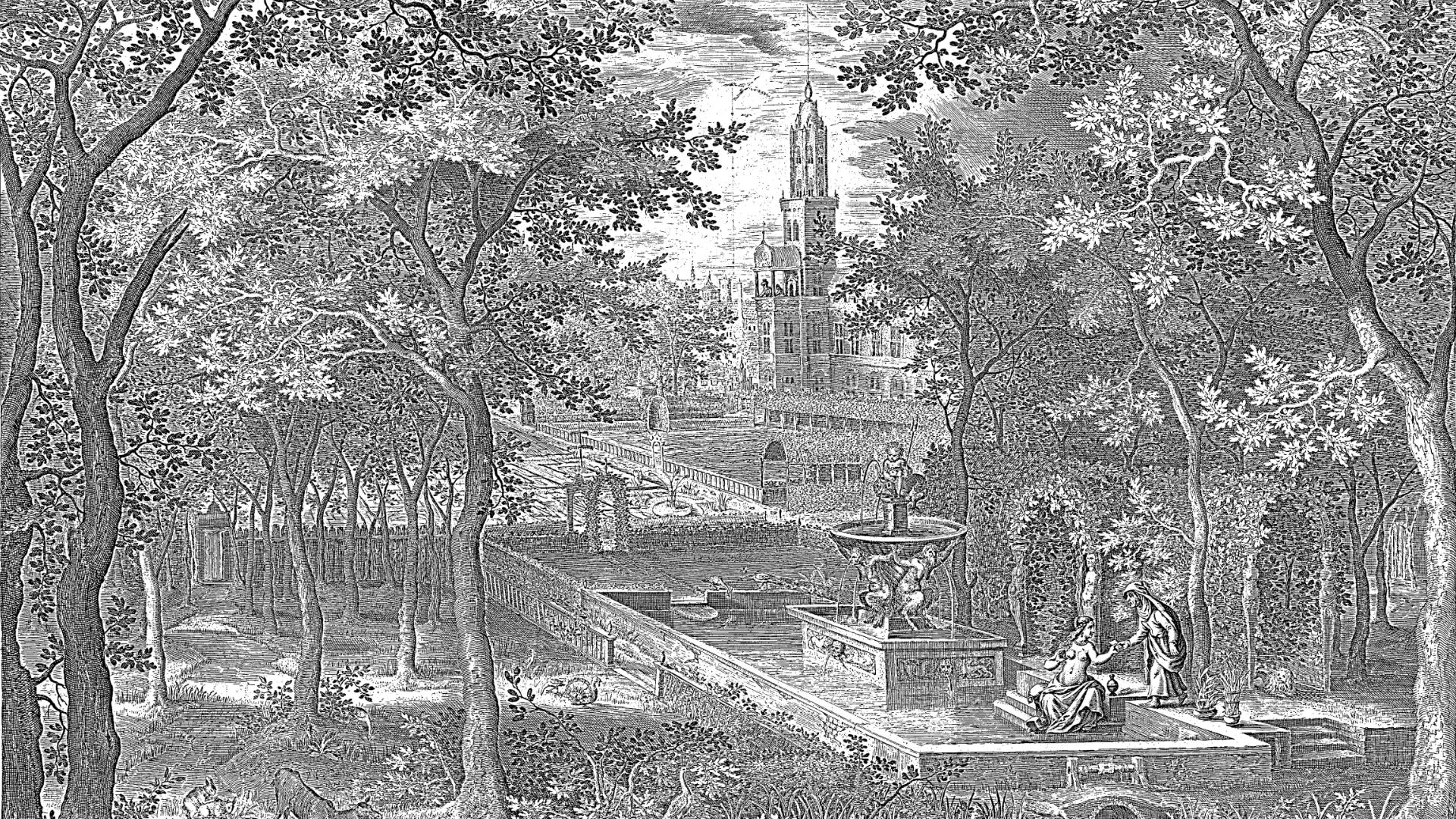Who Builds Whose House? (2 Samuel 7)

Big Idea: God takes the initiative in providing what we need. We simply respond.
It’s amazing how much of the Bible comes in the form of a story.
I used to think that these stories were pretty inefficient. God could have saved us a lot of trouble by giving us the main points that he wanted us to know.
But that was before I realized the genius of God’s plan. We don’t need bullet points. We need stories. In fact, literary scholars and neuroscientists are discovering the impact that stories have on the human brain.
A Wall Street Journal article by Allison Gopnik called "Want a Mind Meld? Tell a Compelling Story," described a variety of brain scan studies that show what stories do. They not only shape one's thoughts, but also foster a connection between a storyteller and listener. Other experiments have looked at how stories help develop neural pathways, and affect our relationships by altering how we order and understand information. We’re formed by stories.
That’s one of the reasons we’re spending this year going through the greatest story in history, the Bible from beginning to end. We’re just at the part when the people God chose — the nation that became Israel — is getting its act together. They have a king named David. He’s amazing:
- He’s fought a giant.
- He’s taken the high road when unfairly attacked.
- He’s finally become king, first of Judah and then of Israel.
- He’s conquered Jerusalem and made it the capital city, united the tribes of Israel, and expanded its borders.
- To top it off, he’s a man of God. He writes these psalms of worship to God that we continue to love today, psalms like Psalm 23: “The LORD is my shepherd….”
The Bible must think that David is important because it devotes quite a bit of time to King David’s story in 1 and 2 Samuel, 1 Chronicles, and the Psalms.
We’ve already spent a bit of time looking at two of the psalms that David wrote. We also looked at a major incident in David’s early life in which he defeated Goliath. We learned the importance of godly leadership, and that David’s godly leadership points us to Jesus. Just as David rescued Israel from Goliath, Jesus rescued us from sin and death. If you’re going to pick key incidents in David’s life, that has to be one of them.
But today we’re going to look at a second major incident in David’s life. It’s found in 2 Samuel 7. It’s not as well known as the story of David and Goliath, but it should be. This is one of the most important stories in the entire Bible.
David’s Plans
Here’s the situation. David has accomplished a lot. He’s far into his reign, and things are peaceful. But something isn’t sitting right with David. And so he turns to Nathan the prophet, one of his advisors, and says, “See now, I dwell in a house of cedar, but the ark of God dwells in a tent” (2 Samuel 7:2).
This is admirable. David is living in a house, probably a pretty nice house. We read back in 2 Samuel 5:11-12:
And Hiram king of Tyre sent messengers to David, and cedar trees, also carpenters and masons who built David a house. And David knew that the LORD had established him king over Israel, and that he had exalted his kingdom for the sake of his people Israel.
It does not seem right that David is living in a nice house while God only has a tabernacle. Think about the tent. It’s probably the same tabernacle that Israel had dragged around the wilderness all those years. By now it would be old, threadbare, and moldy.
Not only that, but we read in verse 1 that Israel had rest from all its enemies. It looks like God’s people are finally where they need to be. All of God’s promises have been fulfilled. David had conquered Jerusalem, which nobody before had managed to do for very long. He lived in a beautiful house. The city was full of energy. It seems like only one thing is missing: for David to build God a house.
I love this. Usually, when we hit periods of our life when things are going well, it’s easy to forget God. That’s not what David did. David realized that it wasn’t appropriate for him to live in a lavish home while the God who had given them so much lived in a tent. David probably was thinking about passages in Deuteronomy 11 and 12 that anticipated this day, when Israel would live in peace, and they would build him a dwelling place.
David didn’t say exactly what he was thinking, but Nathan gave him a green light. “Go, do all that is in your heart, for the LORD is with you,” he says (7:3). It seems that David wanted to build God a temple. Nathan is like when someone wealthy comes to the pastor and says, “I’d like to make a sizable donation to the church.” Nathan doesn’t take much time to think about it.
But then God turns him down.
Read verses 4 to 7:
But that same night the word of the LORD came to Nathan, “Go and tell my servant David, ‘Thus says the LORD: Would you build me a house to dwell in? I have not lived in a house since the day I brought up the people of Israel from Egypt to this day, but I have been moving about in a tent for my dwelling. In all places where I have moved with all the people of Israel, did I speak a word with any of the judges of Israel, whom I commanded to shepherd my people Israel, saying, ‘Why have you not built me a house of cedar?’”
In other words, God isn’t interested in David’s plans. God teaches David an important principle here: “God alone takes the initiative in the great turning points in redemptive history, and he will not have it any other way” (D.A. Carson). Or, as Mark Buchanan imagines David saying, “He would build my house, establish my throne, exalt my name. He did not need my little gestures to do likewise for him.”
Think about all the major highlights in the story so far. Think about Abraham. Abraham didn’t step up and say, “Hey, God, I noticed that humanity needs some help. I wondered if I could play a role?” Absolutely not! God took the initiative and chose Abraham, a pagan idol worshiper, before Abraham even thought of God. In fact, when Abraham took the initiative to help produce an heir, he only caused trouble that still continues today.
Or what about Joseph? Joseph didn’t say, “I think I’ll strategize a way to become a high-powered politician in Egypt so I can rescue God’s people in a famine.” He didn’t have that kind of plan or ambition for his life. He spent years being mistreated, sold into slavery, imprisoned on false charges, before God brought him right where he wanted him. God took the initiative, not Joseph.
And what about Moses? Moses took initiative. We read, “He looked this way and that, and seeing no one, he struck down the Egyptian and hid him in the sand” (Exodus 2:12). Moses blew things, and ended up fleeing Egypt for years waiting for the dust to settle.
Over and over again, we see that it’s God who takes the initiative. What a message to us with our plans to help God. I’ll never forget the story a preacher told of his son offering to help him rake leaves. He looked at the big piles of leaves and said, “Okay, if you want to help, that’s fine.” So his son came out. He jumped in the piles of leaves. He threw the leaves into the air. He buried himself in leaves. After an hour or so of this, the son said, “It’s okay Dad, you don’t have to pay me for helping you rake the leaves.”
That’s what it’s like when we take the initiative to help God. We think we have something to offer God that he needs. As we’ll see later, there is a day when God will allow a house to be built by him, but that time is not now. God doesn’t need us. As Don Carson says:
He doesn’t go through the week saying, “Boy, I can hardly wait till Sunday. I haven’t been stroked recently. I’m a bit disappointed. I’m having a bad hair day because they used out-of-tune guitars instead of a decent pipe organ this week.” He doesn’t need us. He’s not psychologically or materially or spiritually or emotionally or intellectually dependent upon us. He’s the God of aseity. He just doesn’t need us.
God alone takes the initiative when it comes to redemptive history. In one sense, we only ever respond to him. He always initiates first. How foolish to think that God needs us to do something for him. God always sets the agenda, not us. He takes the initiative.
God’s Plans
So those were David’s plans. What are God’s plans instead?
What we read next is one of the high points in all of the Bible. God made a covenant, just as he did with Noah, Abraham, and Moses.
And I will make for you a great name, like the name of the great ones of the earth. And I will appoint a place for my people Israel and will plant them, so that they may dwell in their own place and be disturbed no more. And violent men shall afflict them no more, as formerly, from the time that I appointed judges over my people Israel. And I will give you rest from all your enemies. Moreover, the LORD declares to you that the LORD will make you a house. When your days are fulfilled and you lie down with your fathers, I will raise up your offspring after you, who shall come from your body, and I will establish his kingdom. He shall build a house for my name, and I will establish the throne of his kingdom forever. (7:9-13)
David wanted to build God a house. Instead, God tells David that he's going to build David a house.
What does God promise instead? The promises God makes here are remarkable. This is one of the most important passages in the entire Bible. God’s promises here are key to understanding God’s story and what he’s doing in the world. God’s promises here help us understand what God has promised to us today.
What God promises here is basically an expansion of his previous promises. Here’s the essence of the promise: that God will make an everlasting throne for David and his descendants. “I will establish the throne of his kingdom forever.” This promise is so important that it’s repeated in Psalm 89:
I will establish his offspring forever
and his throne as the days of the heavens…
I will not violate my covenant
or alter the word that went forth from my lips.
Once for all I have sworn by my holiness;
I will not lie to David.
His offspring shall endure forever,
his throne as long as the sun before me.
Like the moon it shall be established forever,
a faithful witness in the skies.
(Psalm 89:29, 34-37)
This promise is key to understanding the story of the Bible, and the promises that we live by.
Spoiler alert: Later on in the story, in 586 BC, Babylon’s King Nebuchadnezzar conquers Judah, destroys the Temple in Jerusalem, and exiles the Jews to Babylon. The David monarchy ends. God’s promises seem to fall. Except they don’t.
Not quite 600 years later, a child is born, a descendant of David. An angel appears to his mother and says:
And behold, you will conceive in your womb and bear a son, and you shall call his name Jesus. He will be great and will be called the Son of the Most High. And the Lord God will give to him the throne of his father David, and he will reign over the house of Jacob forever, and of his kingdom there will be no end. (Luke 1:31-33)
God promises David an everlasting throne and kingdom, and that promise is fulfilled in Jesus.
And that’s why we’re here today.
We keep thinking we can help God. But God shows up and says: let me help you. Let me give you what you really need: a King.
Does that mean we have nothing to do? No. We can respond to this good news. We can respond by bowing to that King. We can respond by giving our lives to him and worshiping him. As John Piper puts it:
The mission of the church today is to submit ourselves to the Son of David who right now rules invisibly from heaven until he puts every enemy under his feet. And our mission is to announce the good news to people in every neighborhood and every nation that they can be happy subjects of Christ’s kingdom forever if they transfer their allegiance from the kingdom of this world to the kingdom of Christ.
To put it another way, personal holiness means learning the attitudes and customs of a new kingdom—the kingdom of Christ. And personal evangelism means telling people that the rightful king of the world against whom they have rebelled is willing to grant amnesty to all who return and live under his rule.
This is the high point of David’s life. God takes the initiative in providing what we need. We simply respond. And respond we must with everything we have.
Father, thank you for taking the initiative. Thank you for this King. May we submit to him. May we take comfort from his reign. May we announce this good news to as many as possible. May we look forward to his eternal reign. In Jesus’ name. Amen.




